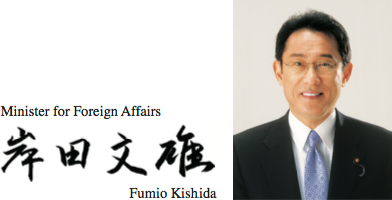Foreword
In the current international community, it is no longer possible for any nation to secure peace and prosperity on its own. A range of various actors, including private companies, local governments, and non-governmental organizations (NGOs), are engaged in global activities and are playing key roles in finding solutions to development challenges and supporting the sustained growth of developing countries. Against this backdrop, Japan, from the perspective of “Proactive Contribution to Peace” based on the principle of international cooperation, is committed to promoting development cooperation more proactively in order to strengthen the foundations of peace, stability, and prosperity of the international community. Japan is also committed to addressing development challenges by building solid and constructive relationships with various actors in the international community and mobilizing their efforts. In addition, Japan will work in coordination with the international community to tackle common cross boundary challenges facing humanity, including environmental issues and climate change, water-related issues, disaster risk reduction, infectious diseases, food issues, and energy issues. Such efforts by Japan will contribute to creating a peaceful, stable, and prosperous international community, and, by extension, will be interlinked with ensuring Japan’s national interests, namely, continuing to develop a prosperous and peaceful society.
ODA provides one of the most important tools for Japan’s agile implementation of diplomacy that realizes both the interests of the international community and those of Japan. It is essential that Japan utilize its ODA financing and share its experience and expertise with the world, not only to promote the development of developing countries, but also to provide emergency humanitarian assistance in response to conflicts and natural disasters, encourage international peace cooperation, and find comprehensive solutions to global issues. At the same time, it is vital for Japan to not only act alone, but to collaborate with international and regional organizations as well as other countries, including other donors and emerging economies, and to deepen partnership with private companies, local governments, NGOs, and universities through using ODA as a catalyst. Furthermore, volunteers of the Japan International Cooperation Agency (JICA), such as Japan Overseas Cooperation Volunteers (JOCV), which celebrated its 50th anniversary last year, are expected to continue to play a more active role in the field of development cooperation. This, indeed, is an “All-Japan” effort designed for the future. The new Development Cooperation Charter approved by the Cabinet in February 2015 clearly explains the basic policies of development cooperation of Japan.
This year’s White Paper reviews the status of the achievement of the Millennium Development Goals (MDGs)—the common challenges of the international community that were set to be achieved by 2015—and the remaining challenges for the future. The White Paper also outlines Japan’s efforts towards the 2030 Agenda, which were adopted, as the Post-2015 Development Agenda, with the aim to overcome the challenges that could not be achieved by 2015 and to realize sustainable development by 2030. Additionally, the White Paper introduces how Japan works collectively to implement “All-Japan” efforts comprised of private companies, local governments, universities, and NGOs, in order to conduct development cooperation hand-in-hand with the Japanese people. I sincerely hope that this White Paper will help deepen understanding of the various topics related to Japan’s development cooperation and encourage active discussions.
March 2016

